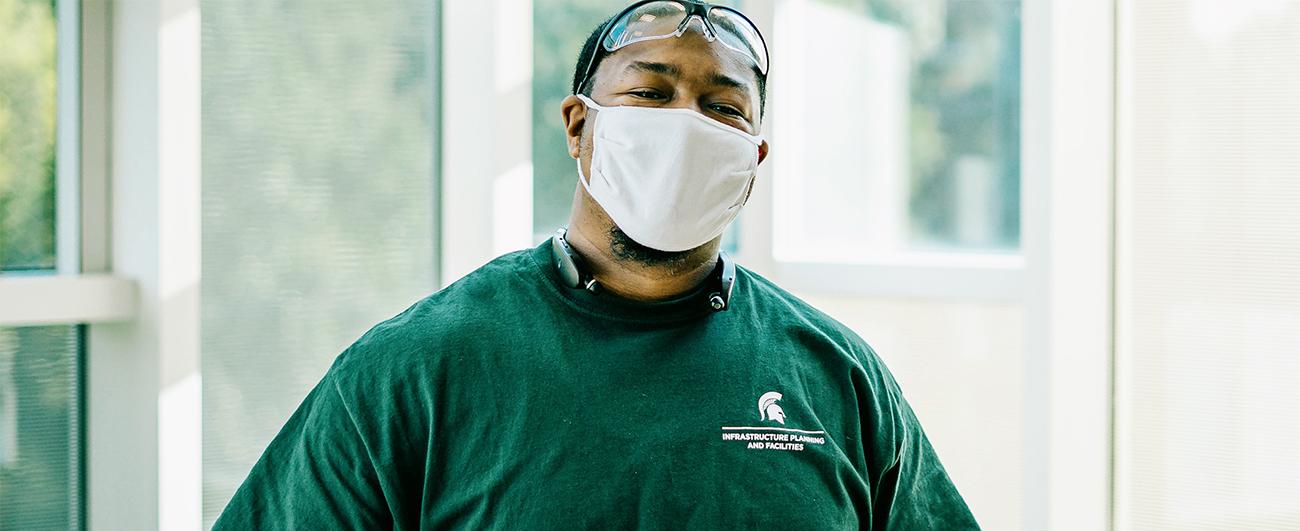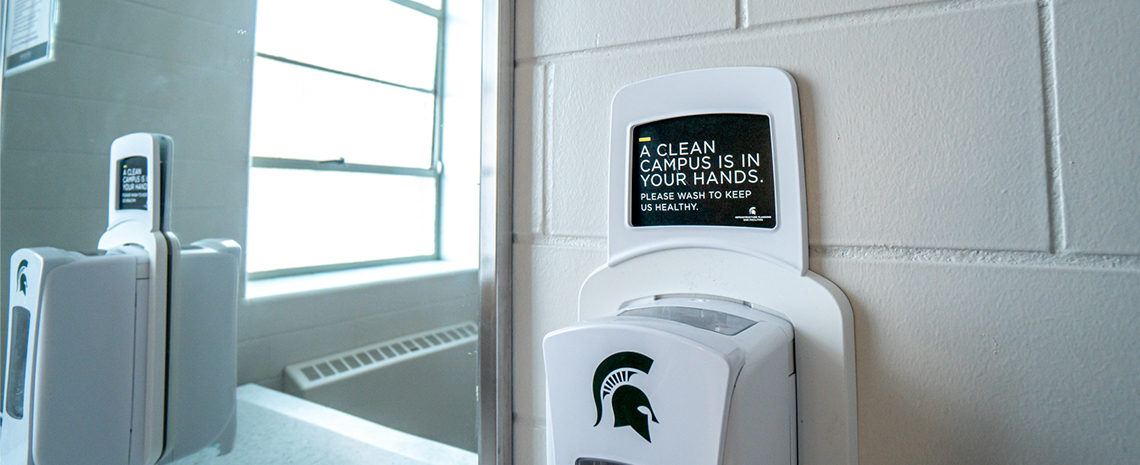IPF COVID-related Efforts

April 2, 2021
Since the COVID pandemic began affecting MSU operations in March 2020, IPF staff have worked to maintain campus while most faculty, staff and students were teaching, working and learning remotely. We have worked to prepare campus so everyone can return in a safe and healthy environment.
Ongoing COVID-related activities:
- Continued evaluation and implementation of ventilation improvements as new spaces come online.
- Replacing filters and HVAC improvements as deemed appropriate.
- Daily flushing of water lines in reduced occupancy buildings to ensure functionality.
- Daily disinfection of public spaces & touch points (railings, handles, buttons, etc.).
- Daily cleaning/disinfecting of high-traffic areas (bathrooms, lounges, etc.).
- Daily treating of tech stations, computer labs and other high-touch areas with Microbcare.
- Use of disinfectant misting units in classrooms and other gathering locations as needed.
- On demand Covid-19 student taxi service in coordination with Olin Health, RHS, and Transportation.
Activity to date:
-
Air quality:
- Invested $1 million in upgrading HVAC systems across campus.
- About 100 buildings — including 1,110 classrooms — had air quality reviewed in 2020.
- All classroom buildings reviewed. Others: Broad Art Museum, Breslin, power plant, IM East and West.
- The review was done by staff from IPF, EHS and the University Physician’s Office.
- Building-wide HVAC systems upgraded with better filters where possible that can remove more viruses from the air.
- Other spaces had more than 60 air purifiers installed in them or portable purifiers were added.
- 238 campus elevators had UV purifiers installed in them.
-
Water quality:
- IPF regularly flushed building water systems to prevent water from becoming stagnant. CDC guidelines were closely monitored to ensure the campus community was provided safe, clean drinking water.
-
Signage:
- Installed 15,000 interior building signs, 1,900 floor graphics, 900 lawn signs, 325 in-vehicle stickers and 40 roadway entrance signs.
-
Classroom preparation:
- Moved 10,000 pieces of furniture to storage.
- Banded 10,000 classroom seats to enforce physical distancing.
-
Cleaning:
- Classrooms and public spaces cleaned daily using a virucidal cleaner with a heavy focus on frequently touched surfaces — chair backs, hand rails and door handles.
- Chalkboards, whiteboards and floors cleaned daily. Also, keyboards and computer equipment in public spaces and classrooms.
- Hand-sanitizer stations added at building entrances.
- Invested in additional disinfecting misting systems that we’ll use in large classrooms and similar spaces.
- Anti-microbial cleaning product to maintain floors that works throughout the day.
- Elevators are cleaned at least daily and inspected regularly throughout the day.
- Bathrooms:
- Heavily used bathrooms will be checked hourly and have touchpoints cleaned with a germicidal disinfectant. Floors will be mopped daily.
- Posters were placed in all bathrooms reminding people to thoroughly wash their hands, use a face covering and physical distance.
-
Polycarbonate (Plexiglass) shielding:
- Situated more than 26,000 square feet of polycarbonate shielding to create transparent barriers at customer-facing locations.

Resources
Stay up-to-date with MSU's resource page about its COVID response.
